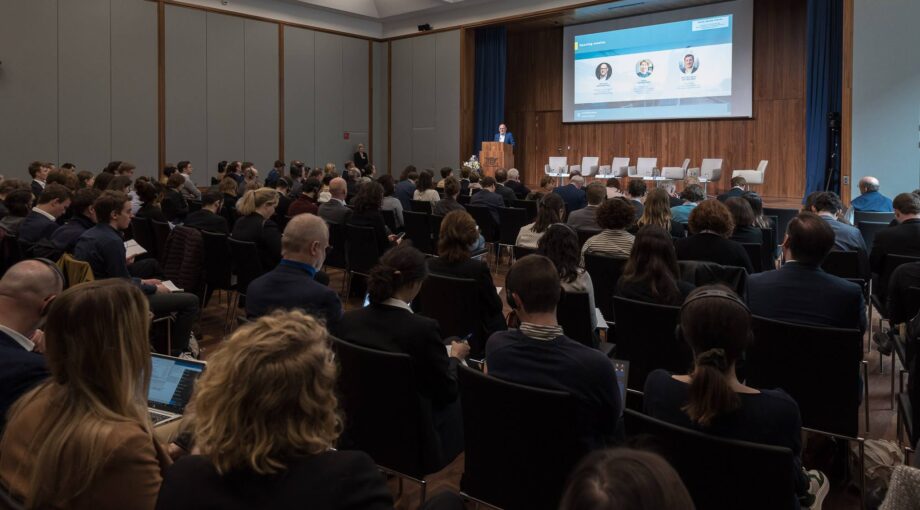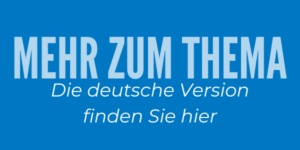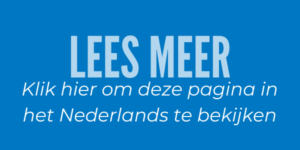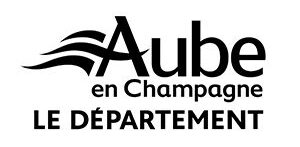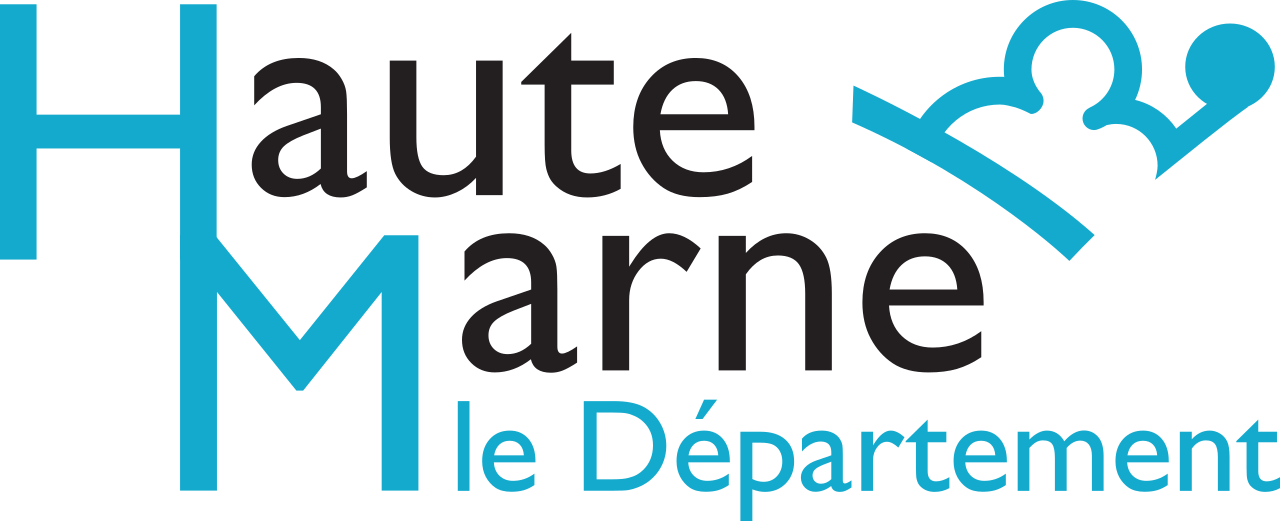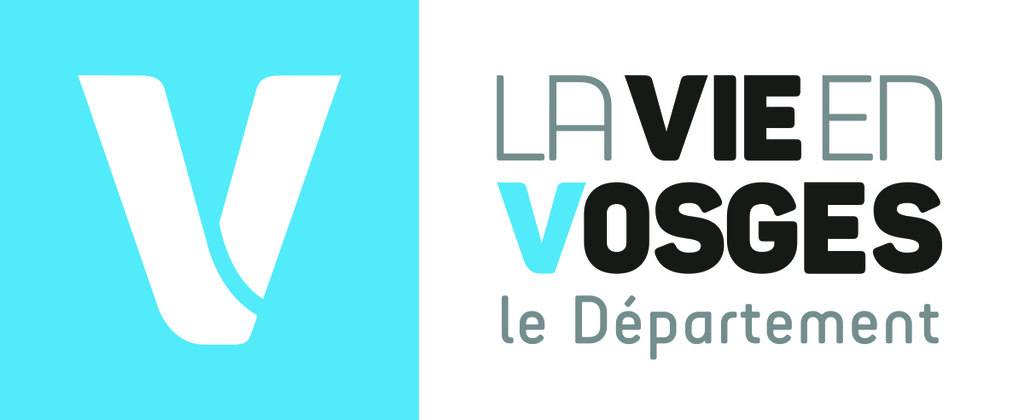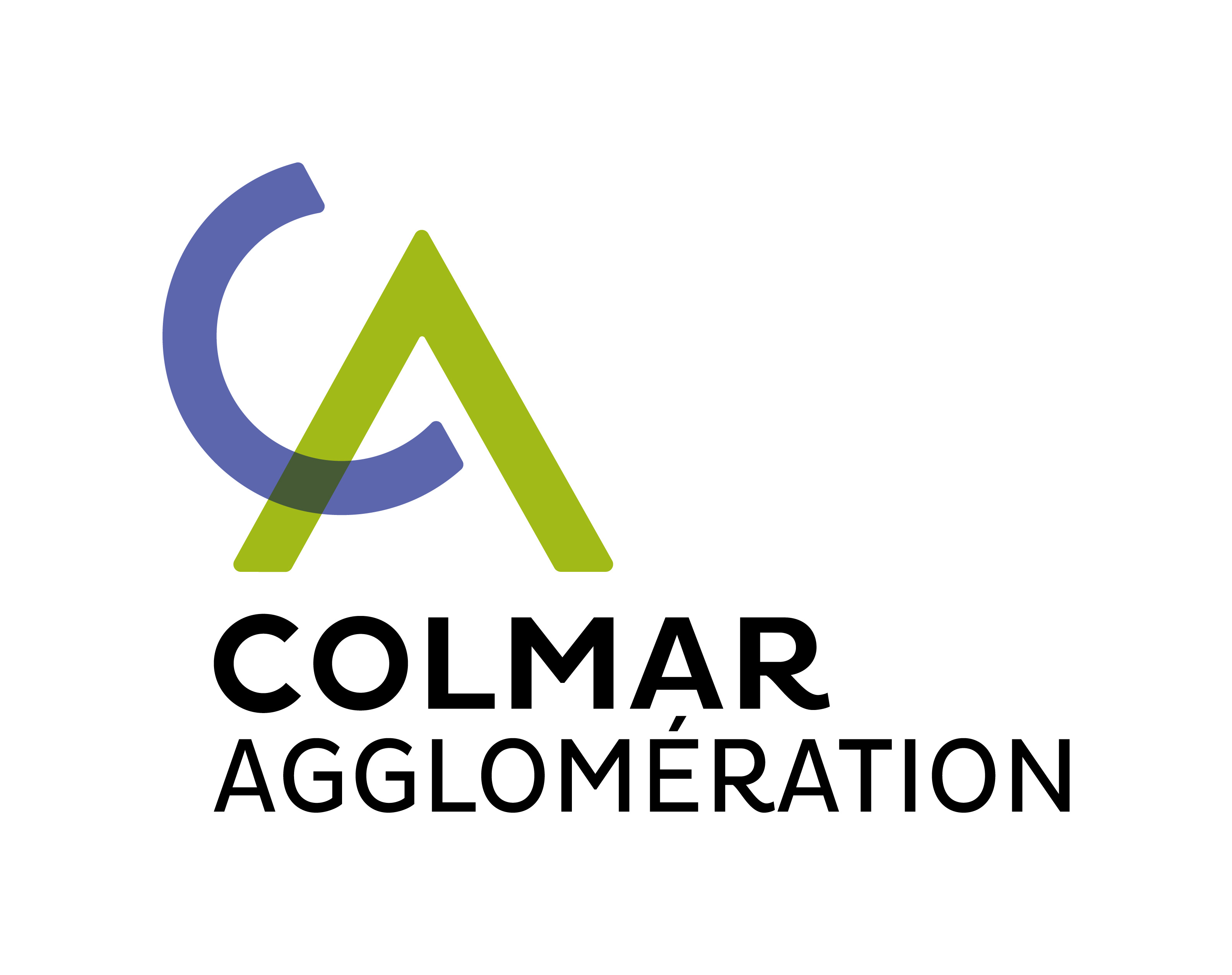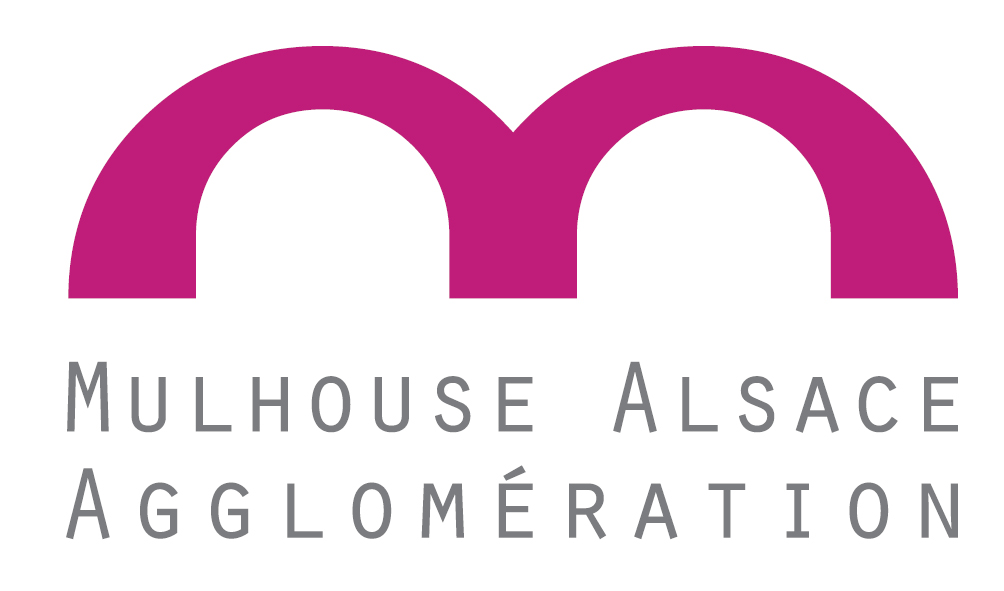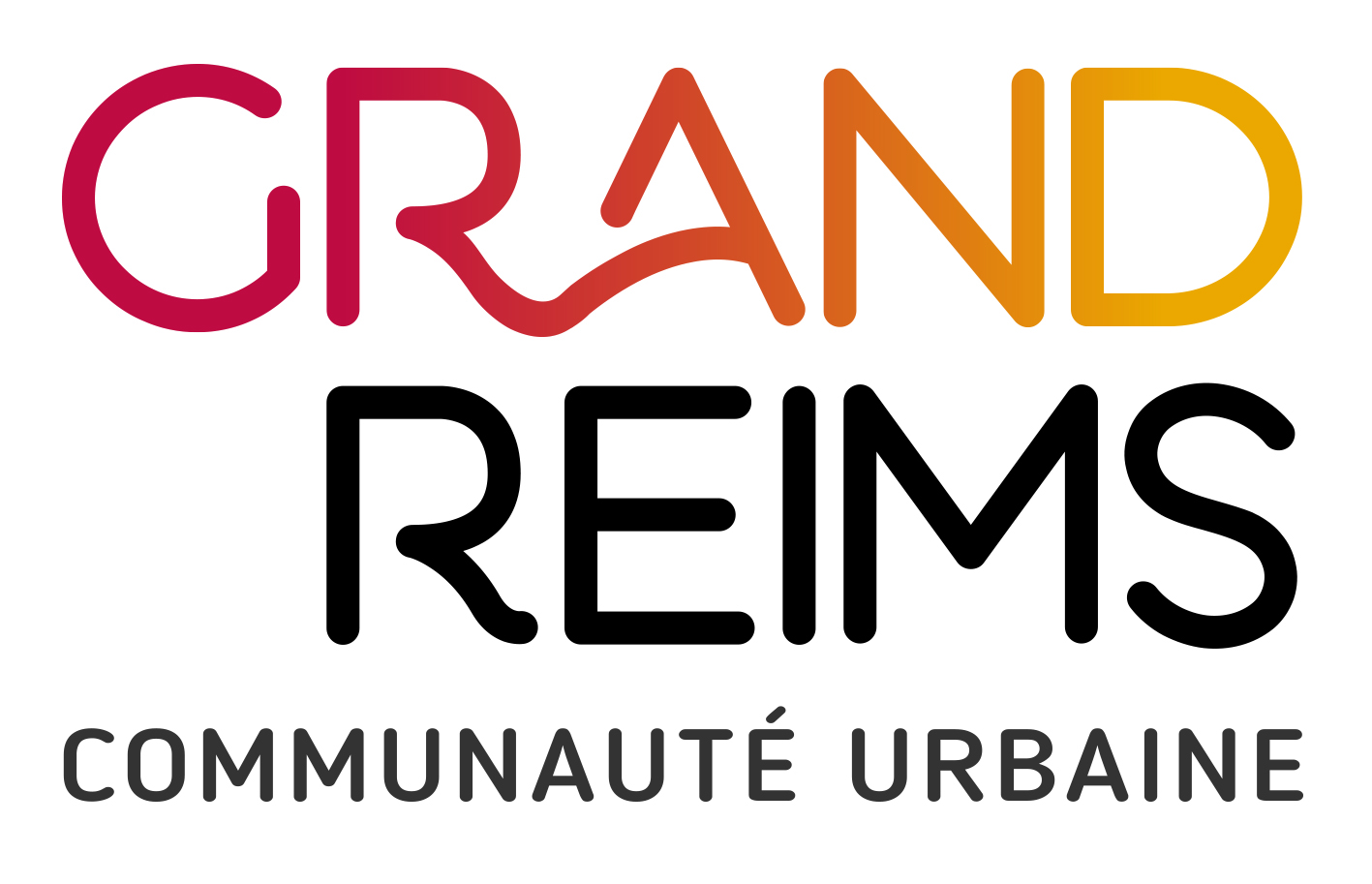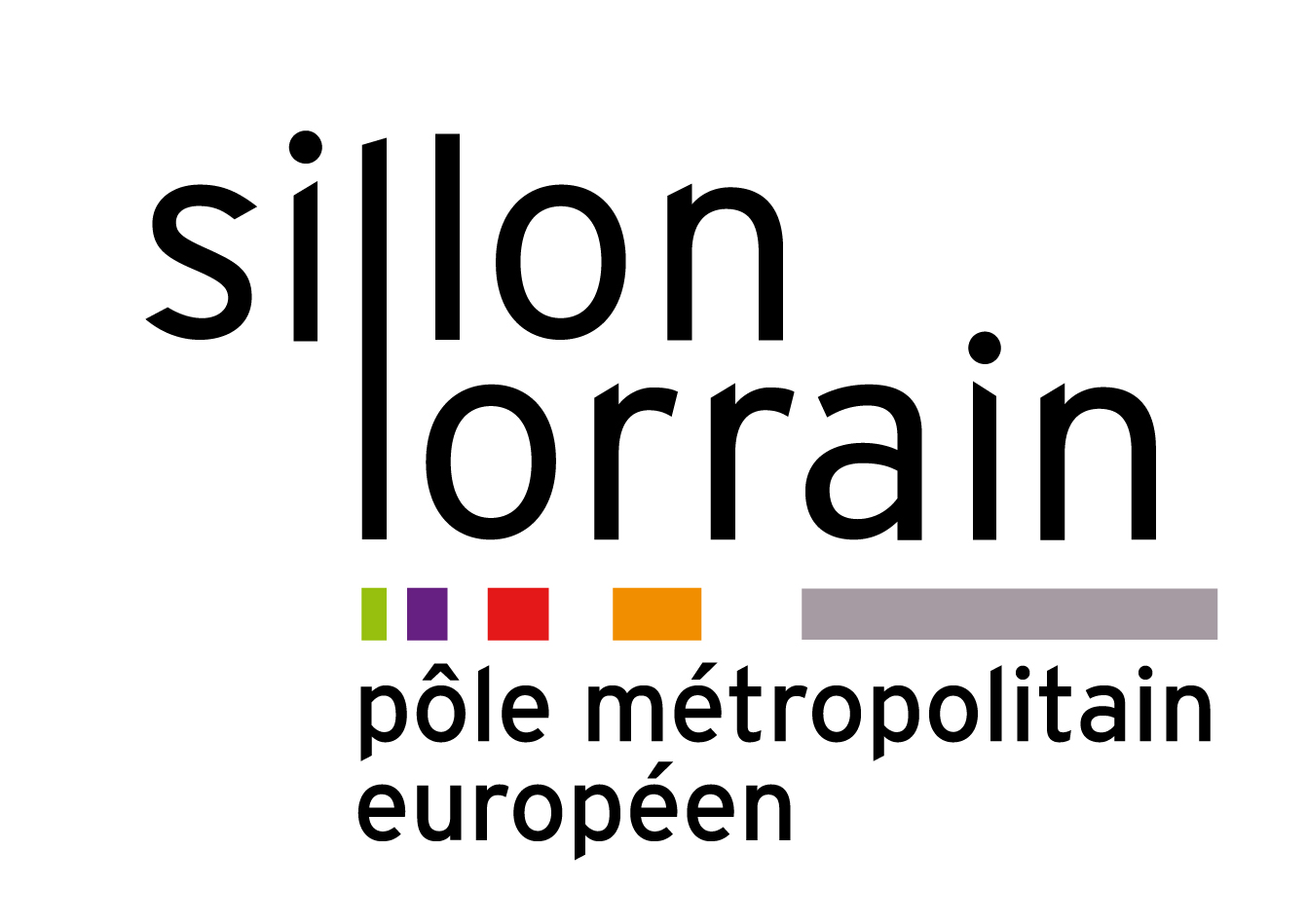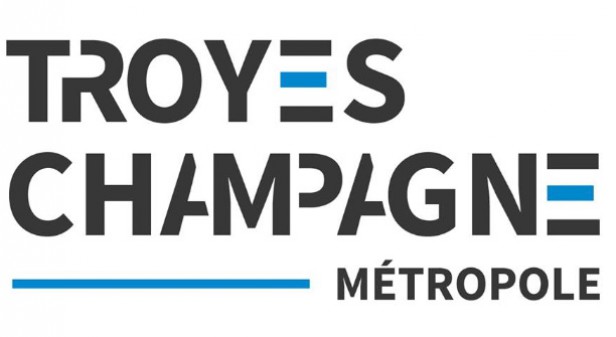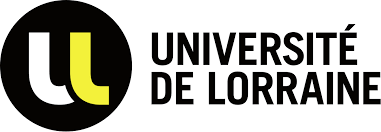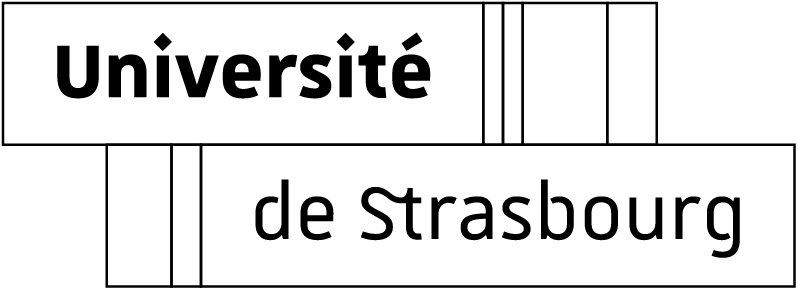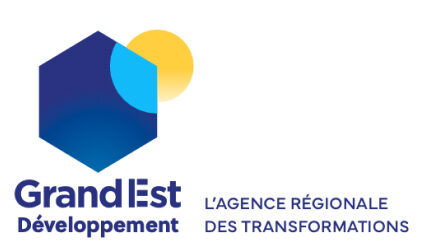2nd edition of the Rhine-Meuse Forum, the event « Mobility in Europe: what solutions for sustainable and borderless transport? » was organized on April 12, 2023 by the Representations of the Grand Est and the Land of Baden-Württemberg to the European Union in partnership with the Benelux Union, the House of Dutch Provinces and the French Embassy in Belgium.
After an opening by Winfried Hermann, Minister of Transport of the State of Baden-Württemberg, Anne Sander, President of Grand Est-Europe, and Jan-Christoph Oetjen, Vice-Chair of the Committee on Transport and Tourism (TRAN), four discussion panels defined the day’s agenda.
Car and rail industries: what future for the « Made in Europe »?
Moderated by Bruno Grandjean, General manager of the Pôle véhicule du futur, President of the European Automotive Cluster Network
Speakers :
- Jürgen Barke, Minister of Economy, Innovation, Digital and Energy of Saarland
- Claude Sturni, Vice-President of the Grand Est Region responsible for economic development
- Michael Bloss MEP, member of the Industry and Environment Committees
- Joaquim Nunes de Almeida, Director Mobility and Energy-intensive Industries, DG GROW, European Commission
- Franz Loogen, President of the State Agency of Baden-Württemberg for New Mobility Solutions and Automotive, e-mobil BW
- Sigrid de Vries, Director General of the European Automobile Manufacturers Association (ACEA)
Trans-European transport networks: can we meet the challenge?
Moderated by Julien Beccherle, Deputy Director General for Mobility, Grand Est Region
Speakers :
- Dominique Riquet, MEP, co-rapporteur on the TEN-T review
- Herald Ruijters, Deputy director general, DG Move, European Commission
- Anne-Marie Jean, Vice President of the Eurometropolis of Strasbourg and President of the Autonomous Port of Strasbourg
- Lucia Luijten, Secretary General of the Central Commission for Navigation on the Rhine
- Sabine Stock, Executive Board Member of Austrian Federal Railways, Passenger Services
Closing of the morning session by Catherine Trautmann, European coordinator of the North Sea – Baltic Sea corridor (TEN-T), former Member of the European Parliament
Which kind of innovations for tomorrow’s mobility
Moderated by Jan Molema, Director at Benelux Union
Speakers :
- Winfried Hermann MdL, Minister of Transport of the State of Baden-Württemberg
- Lydia Peeters, Minister of Mobility and Public Works, Flanders
- Vera Tax, MEP, member of the Committee on Transport and Tourism
- Torsten Klimke, Head of Innovation and Research Unit, DG MOVE
- Alain Dieterlen, Vice-President of the University of Haute-Alsace, vice-president of Eucor
- Marie-José Navarre, Vice-President of Lohr
Towards borderless mobility for citizens?
Moderated by Rob van Eijkeren, Director of the bureau of the House of the Dutch Provinces
Speakers :
- Georges Gilkinet, Deputy Prime Minister and Minister for Mobility, Kingdom of Belgium
- Jean-Claude Meyer, Deputy Secretary General of the Benelux Union
- Pascal Arimont, MEP, member of the Committee on Regional Development
- Anne Sander, MEP, founder of the European Parliament’s cross-border group
- Jean-Pierre Halkin, Head of Unit Interreg, cross-border cooperation, internal borders, DG REGIO, European Commission
- Frédéric Bierry, President of the European Collectivity of Alsace
The event ended with a speech by Winfried Hermann, Minister of Transport of the State of Baden-Württemberg, Franck Leroy, President of the Grand Est Region, and Kris Peeters, Vice-President of the European Investment Bank.
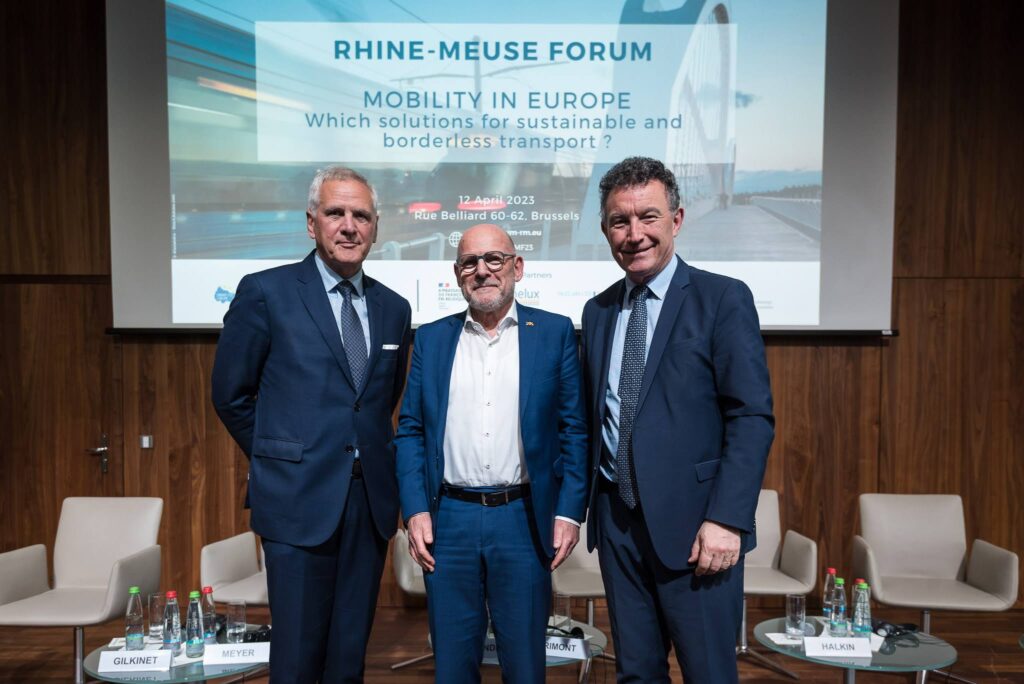
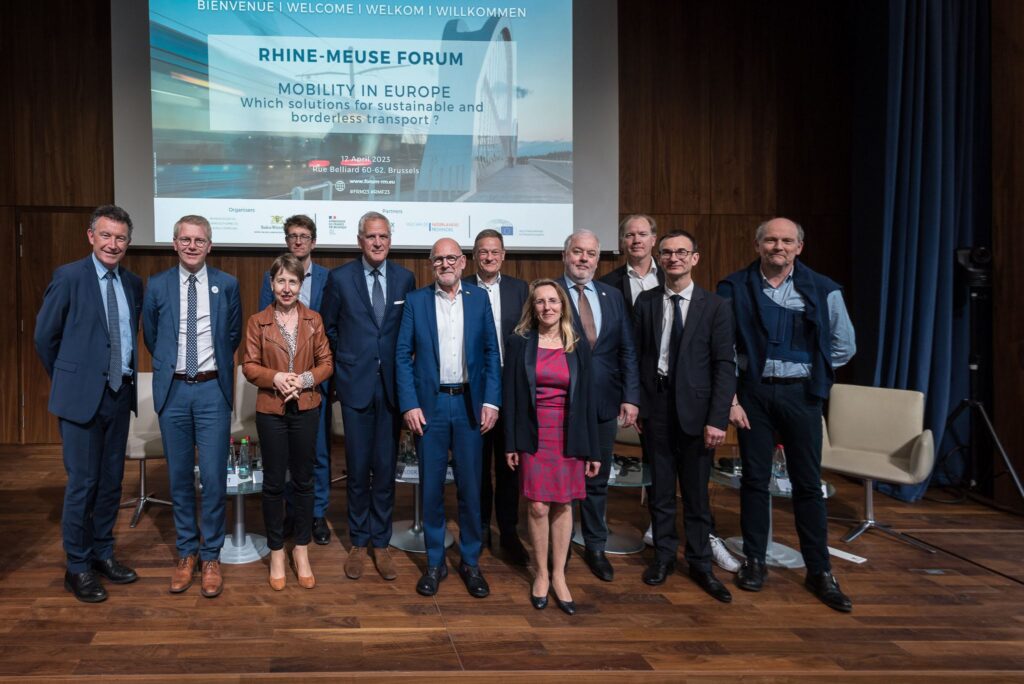
The Rhine-Meuse basin: an innovative area
The lunch break of the Rhine-Meuse Forum was dedicated to the presentation of innovative projects in the field of mobility.
In a dedicated area, various project promoters were able to present their territorial or technological innovations – projects that promote a greener, more sustainable mobility, more favorable to economic, social and territorial cohesion and contribute to the transformation of the transport sector in the Rhine-Meuse basin.
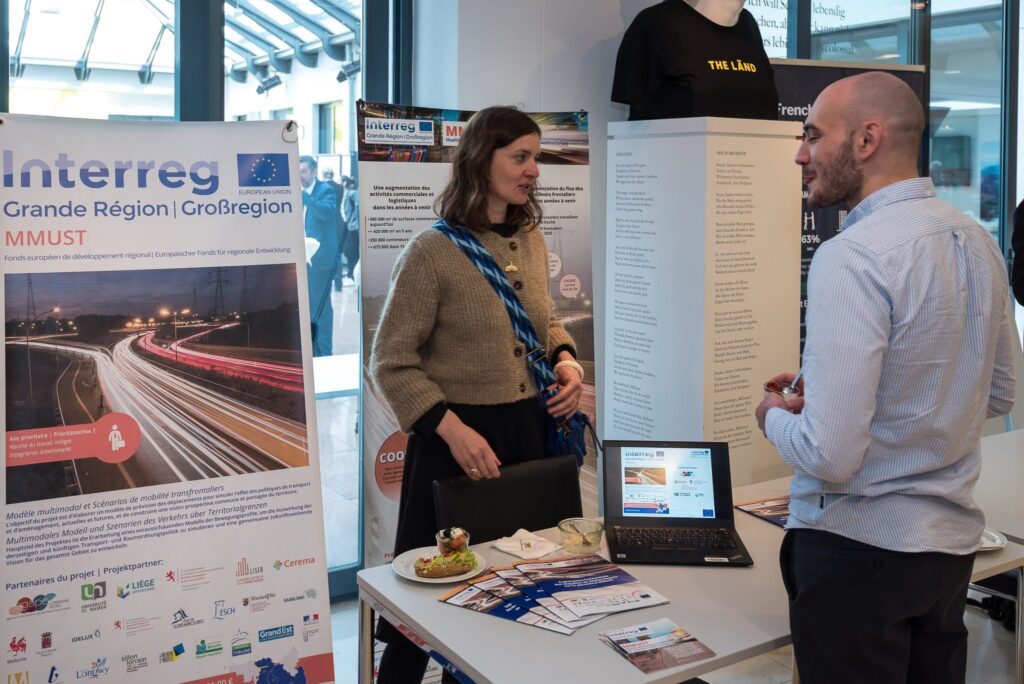
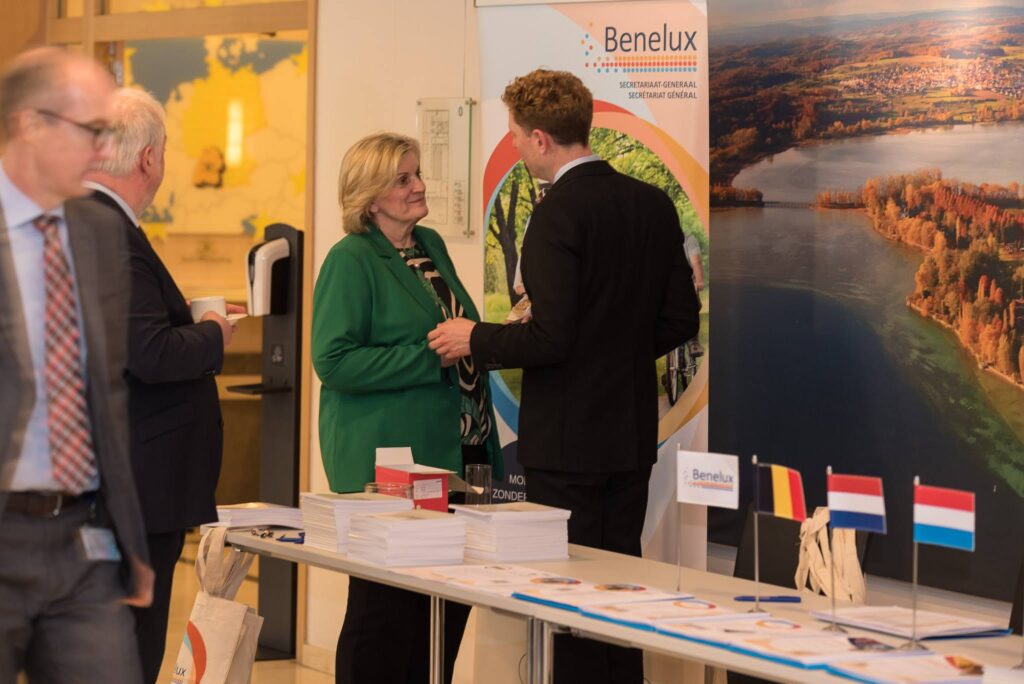
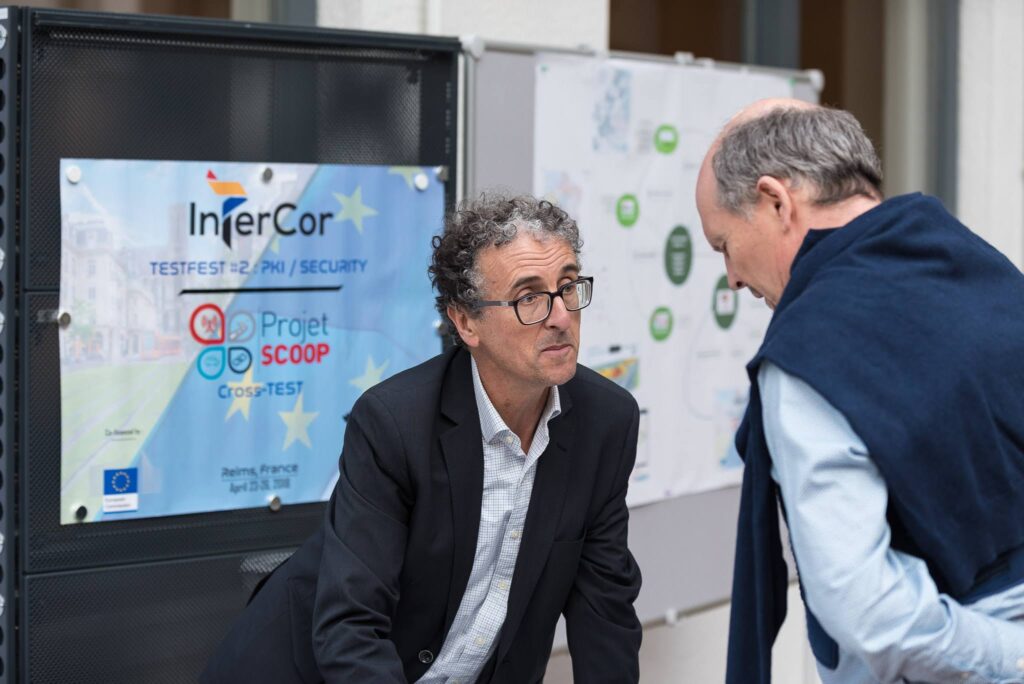
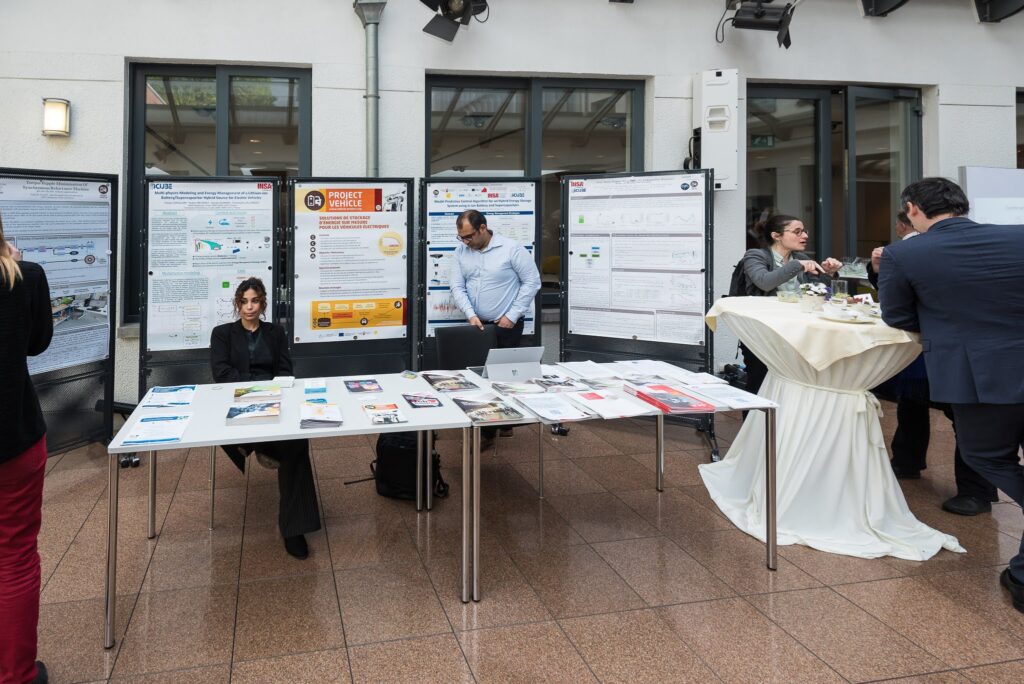
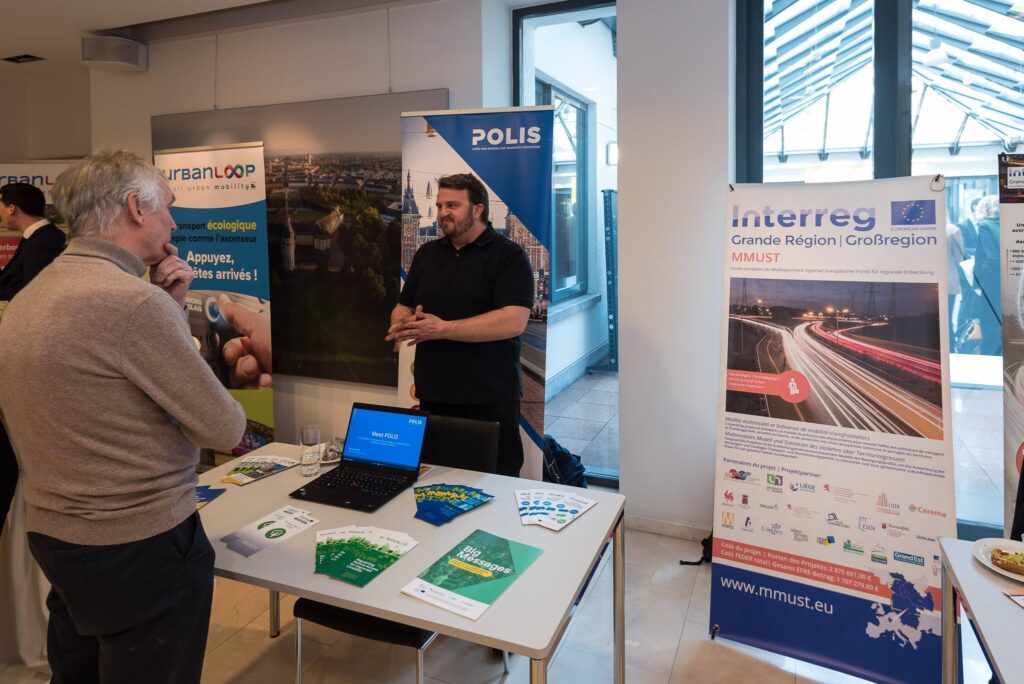
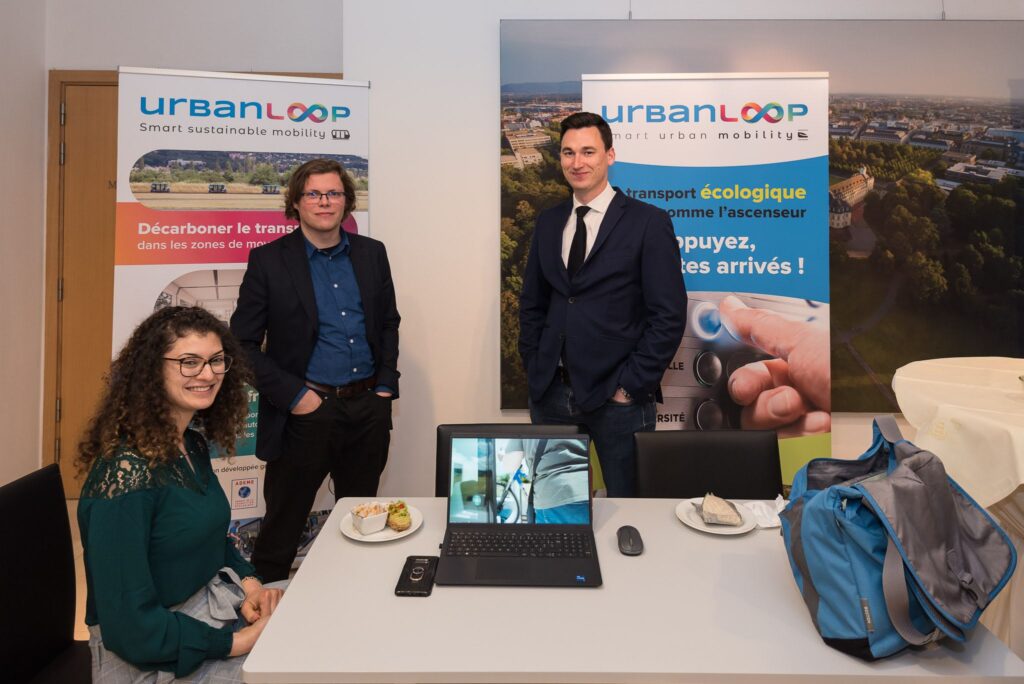
Photos © Eric Berghen
